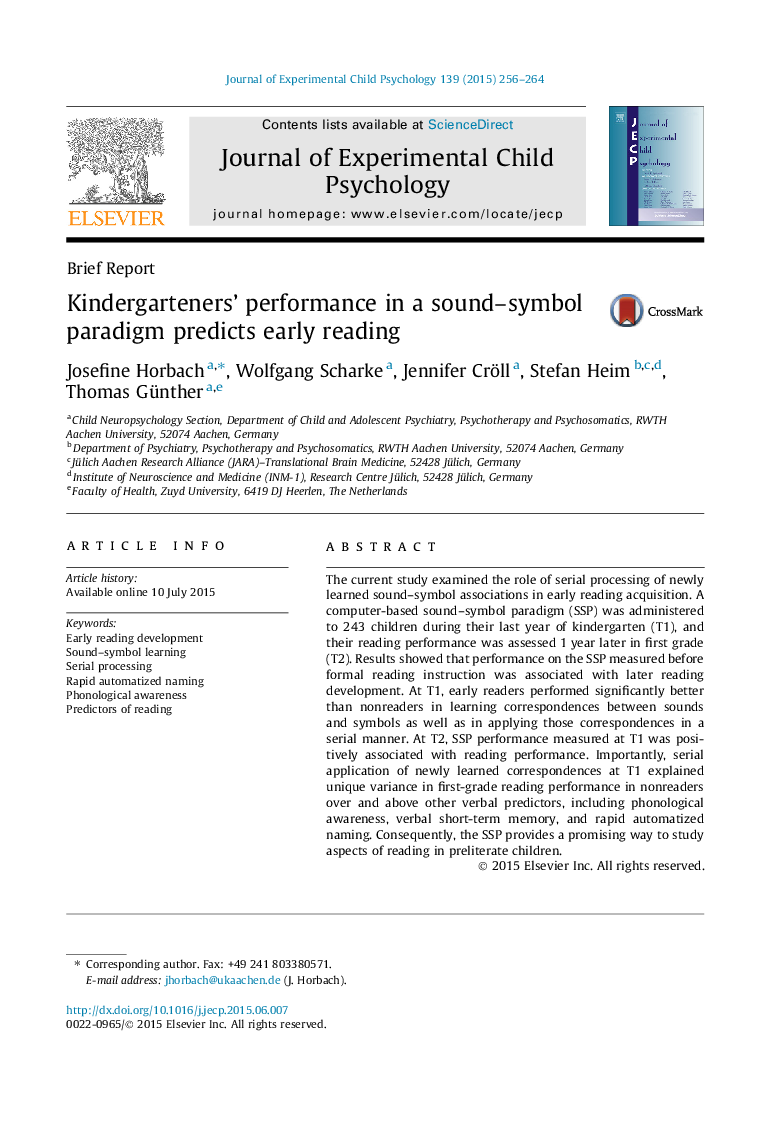| Article ID | Journal | Published Year | Pages | File Type |
|---|---|---|---|---|
| 917963 | Journal of Experimental Child Psychology | 2015 | 9 Pages |
Abstract
The current study examined the role of serial processing of newly learned sound-symbol associations in early reading acquisition. A computer-based sound-symbol paradigm (SSP) was administered to 243 children during their last year of kindergarten (T1), and their reading performance was assessed 1Â year later in first grade (T2). Results showed that performance on the SSP measured before formal reading instruction was associated with later reading development. At T1, early readers performed significantly better than nonreaders in learning correspondences between sounds and symbols as well as in applying those correspondences in a serial manner. At T2, SSP performance measured at T1 was positively associated with reading performance. Importantly, serial application of newly learned correspondences at T1 explained unique variance in first-grade reading performance in nonreaders over and above other verbal predictors, including phonological awareness, verbal short-term memory, and rapid automatized naming. Consequently, the SSP provides a promising way to study aspects of reading in preliterate children.
Related Topics
Social Sciences and Humanities
Psychology
Developmental and Educational Psychology
Authors
Josefine Horbach, Wolfgang Scharke, Jennifer Cröll, Stefan Heim, Thomas Günther,
